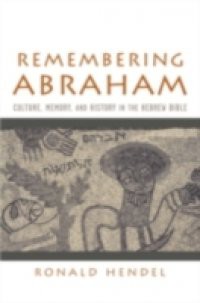According to an old tradition preserved in the Palestinian Targums, the Hebrew Bible is the Book of Memories. The sacred past recalled in the Bible serves as a model and wellspring for the present. The remembered past, says Ronald Hendel, is the material with which biblical Israel constructed its identity as a people, a religion, and a culture. It is a mixture of history, collective memory, folklore, and literary brilliance, and is often colored by political and religious interests. In Israels formative years, these memories circulated orally in the context of family and tribe. Over time they came to be crystallized in various written texts. The Hebrew Bible is a vast compendium of writings, spanning a thousand-year period from roughly the twelfth to the second century BCE, and representing perhaps a small slice of the writings of that period. The texts are often overwritten by later texts, creating a complex pastiche of text, reinterpretation, and commentary. The religion and culture of ancient Israel are expressed by these texts, and in no small part also created by them, as they formulate new or altered conceptions of the sacred past. Remembering Abraham explores the interplay of culture, history, and memory in the Hebrew Bible. Hendel examines the Hebrew Bibles portrayal of Israel and its history, and correlates the biblical past with our own sense of the past. He addresses the ways that culture, memory, and history interweave in the self-fashioning of Israels identity, and in the biblical portrayals of the patriarchs, the Exodus, and King Solomon. A concluding chapter explores the broad horizons of the biblical sense of the past. This accessibly written book represents the mature thought of one of our leading scholars of the Hebrew Bible.

